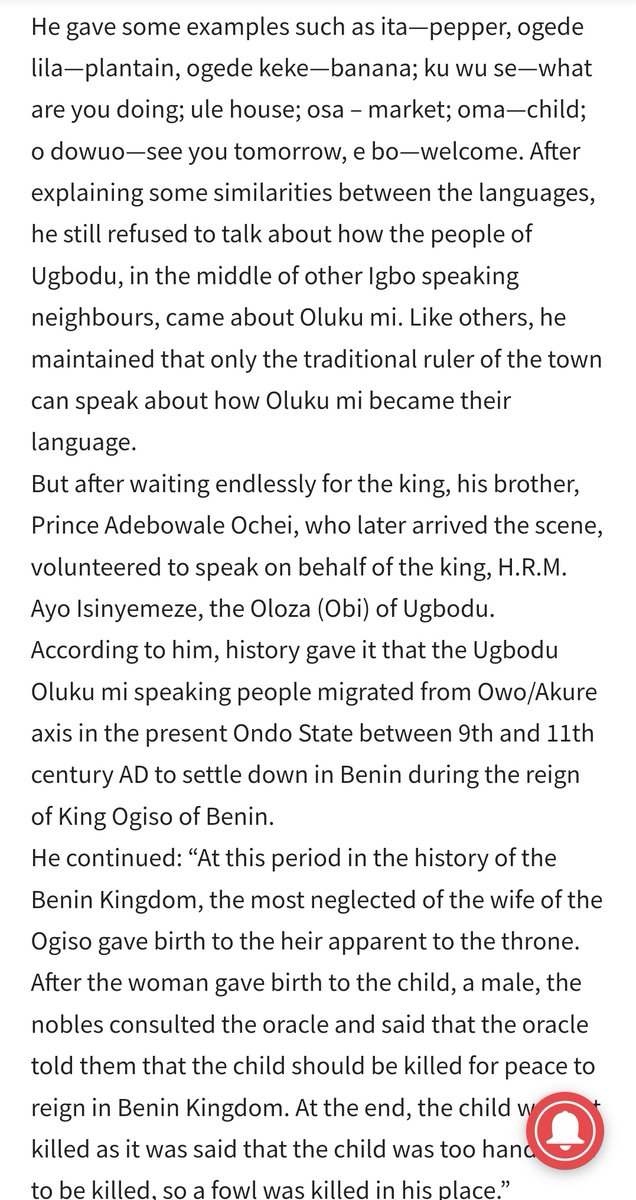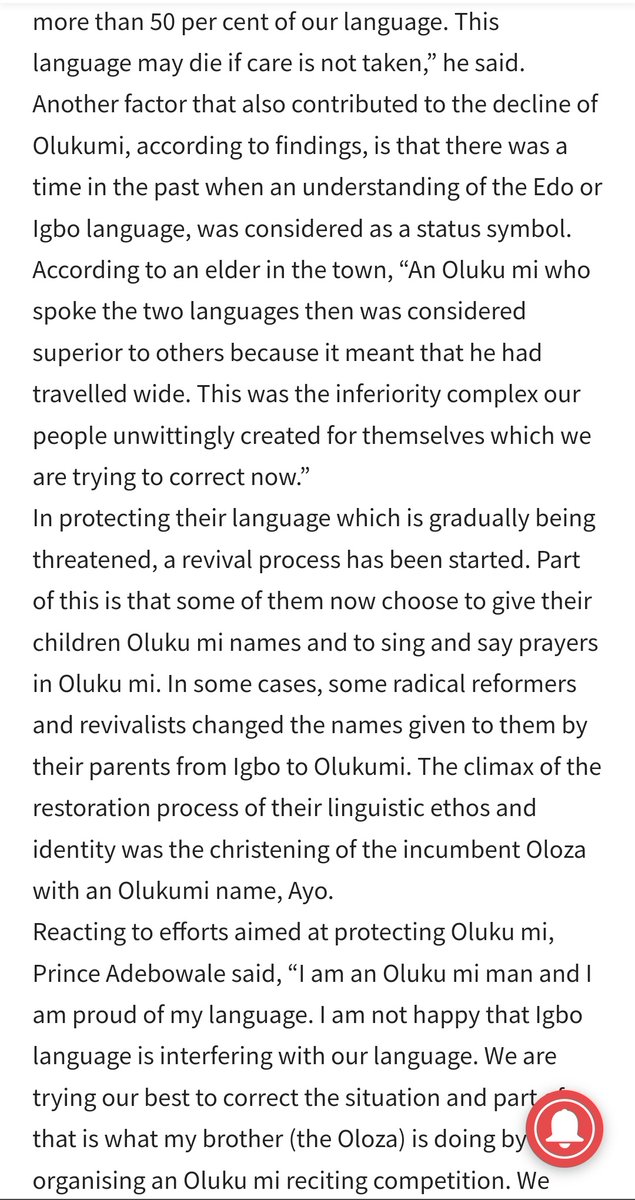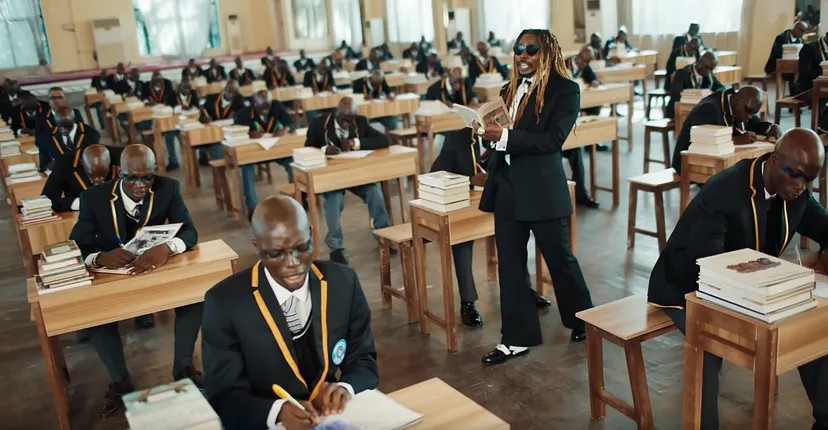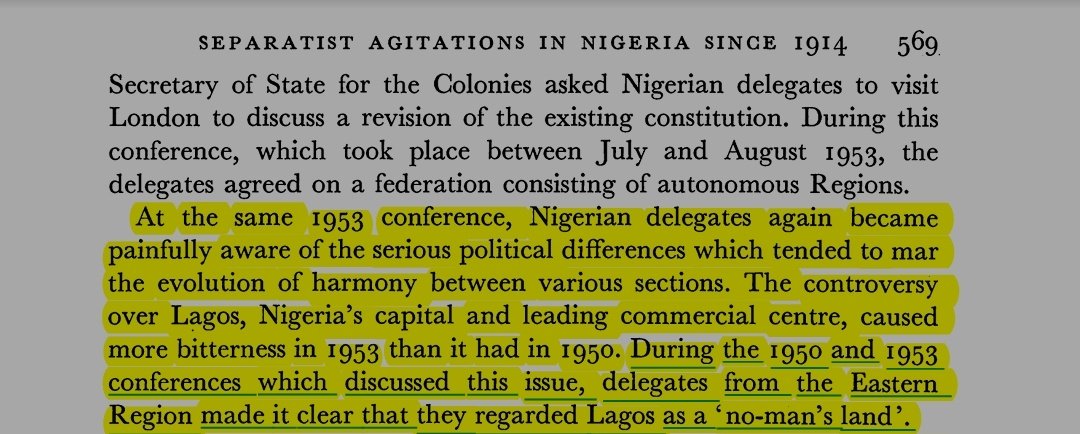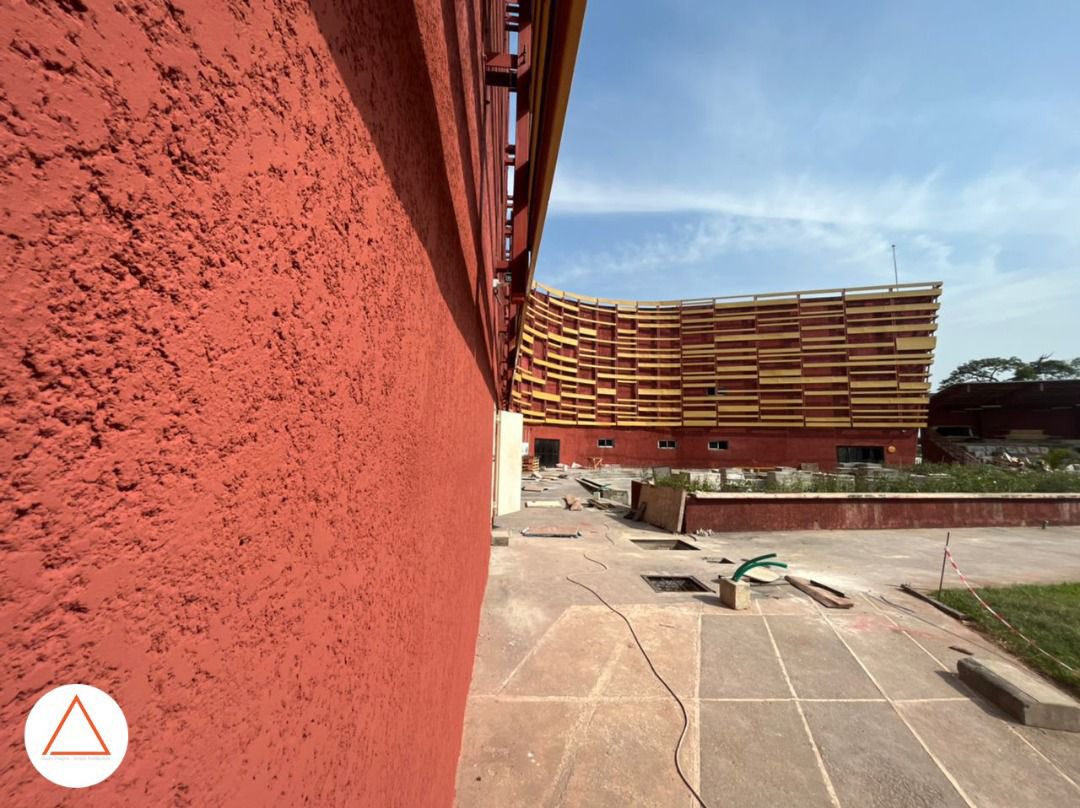
#Yoruba #History
YORÙBÁ communities in Delta North called OLÙKUMI.
-Ugbodu was founded as UGBODUMILA.
-Ukwu Nzu was founded as Eko-Efun due to the presence of abundant kaolin or native chalk there.

YORÙBÁ communities in Delta North called OLÙKUMI.
-Ugbodu was founded as UGBODUMILA.
-Ukwu Nzu was founded as Eko-Efun due to the presence of abundant kaolin or native chalk there.


They are said to the the oldest people in Delta North and their Igbo speaking Neighbours call them ODIANI which in Igbo language means the "ANCIENT PEOPLE" and you know what it means for your neighbours to call you ancient people.
Geographical they share common boundary with Esan (Ishan) people to their North, to the south they share common boundary with the Ezechime clans and to their east is the River Niger.
"Yorùbá community in the heart of Igbo-speaking Delta produces own Bible, dictionary"
"Yorùbá community in the heart of Igbo-speaking Delta produces own Bible, dictionary"
They are called OLÙKUMI's. They equally speak Olùkumi language akin to the Yorùbá language as their mother tongue and they are in seven communities deep in the heart of Igbo-speaking Aniocha North Local Government Area of Delta State. They traced their history to Owo in Ondo
State via a sojourn in Edo before finally settling down at their present location surrounded by hills and mineral resources like kaolin and coal. With a population of about 13,750 according to the 2006 national population census, the people inhabit the rich agricultural belt
of Ugbodu, Ukwu-Nzu (originally called Eko-Efun because of huge deposit of chalk), Ubulubu, Ugboba, Idumogo, Ogodor and Anioma.
Although the people are one, in some quarters of the communities like Ubulubu, Ukwu- Nzu, some persons don’t even speak the language. Two prominent
Although the people are one, in some quarters of the communities like Ubulubu, Ukwu- Nzu, some persons don’t even speak the language. Two prominent
personalities who made Nigeria proud within the beauty and sports spaces are proud Olukumis from Ugbodu. They are Miss Nigeria 1958, Helen Anyamelune of blessed memory and Captain of the Eaglets in 1985, Nduka Ugbade, who also is the coach of the victorious Golden Eaglets at
the WAFU Cup in Cape Coast, Ghana 2022.
The Olùkumi language which is closely related to Yorùbá has over the years been infused with Igbo and Edo words as a result of the influences of the languages of the neighbouring communities. The uniqueness of the language, the number of
The Olùkumi language which is closely related to Yorùbá has over the years been infused with Igbo and Edo words as a result of the influences of the languages of the neighbouring communities. The uniqueness of the language, the number of
the speakers and their location in the midst of non-Olukumis are, however, placing the language in such a tenuous position as to threaten its existence. As at today the language is not taught in schools but the people are deliberate in their efforts to stimulate and ensure that
the language is sustained as it remains the first language the people speak among themselves in their respective communities before diverting to Igbo or Pidgin if they are convinced the next person doesn’t understand the language.
In 2015, the Nigerian Tribune visited Ugbodu and three other communities where the derivative of Yorùbá language is the same. The people revealed that they were settlers from Owo and stated how they finally arrived in the area. The Nigerian Tribune report, written by Banji Aluko
is reproduced here: “Knocking at the door at the first point of call in Ugbodu, a young lady emerged from the building and replied, ta ni yen? Hearing the reply, one thought it was a mere coincidence.” Of course, there was every reason to be surprised since the community was not
anywhere near the Yorùbá enclave where such a reply can be anticipated. While trying to decipher why the lady gave such a reply, what further followed was more confusing.
tribuneonlineng.com/yoruba-communi…
tribuneonlineng.com/yoruba-communi…
A girl of about five appeared and said 'Mo fe ra biscuit'. Perhaps, the people are part of the Yorùbá community living in the town, the writer guessed as he tried to find out from the lady. "Are you a Yorùbá woman; what's the meaning of ta ni yen?", The writer asked the questions
at once.
Reluctantly, she answered, "I am not Yorùbá o, I am just speaking my language.". Apparently, she was not unaware of the similarity between her language and Yorùbá language. The lady refused to entertain further question about her language and asked him to visit the
Reluctantly, she answered, "I am not Yorùbá o, I am just speaking my language.". Apparently, she was not unaware of the similarity between her language and Yorùbá language. The lady refused to entertain further question about her language and asked him to visit the
• • •
Missing some Tweet in this thread? You can try to
force a refresh


